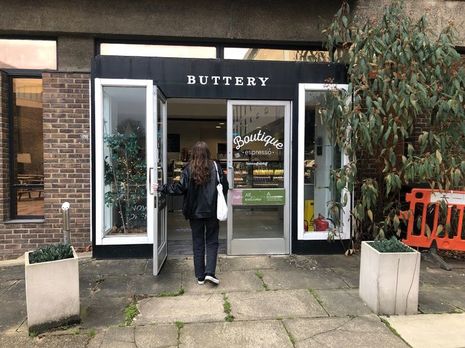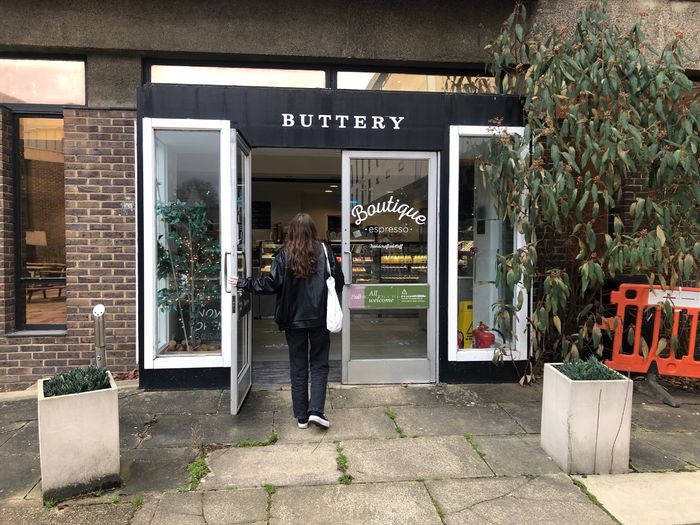Cambridge has a compassion problem
The alleged citizen’s arrest in the Sidgwick buttery proves this university lacks empathy more than anything else

Picture the scene: it’s Monday night and you’re scrolling through Camfess, the unofficial Facebook oracle for all things Cambridge. As you peruse the horror stories about traumatic club nights and supervision blunders, you come across a shudder-inducing post. It details how, just a few days after the Sidgwick Buttery reopened, a student performed a citizen’s arrest on one of their peers because they saw them – allegedly – stealing a sandwich. I was just as dumbfounded as you probably are reading this.
While I concede that Camfess is far from a trustworthy journalistic source, something about the arrest stuck with me. Even if the Facebook tale was just the product of a bored literature undergrad’s imagination, my mind immediately concocted visions of the scene. I could picture student onlookers forced to reckon with how quickly their peers could turn against each other in pursuit of… good morals, self-preservation, obedience to the law? I couldn’t tell you what was precisely gained at first. Did the self-professed police officer feel it their duty to call in their peer as a law-abiding, upstanding young citizen – or were they just possessed by the spirit of The Karen?
Firstly, a citizen’s arrest is just cringe as a concept. In this cost of living crisis too, with its severe squeeze on student life, it is not at all justifiable to publicly humiliate a student potentially just seeking a cheap lunch. I’m not going to act like this was a Jean-Valjean-in-Les-Misérables situation but legality and morality are not inherently synonymous. Maybe the supposed student cop should spend less time entertaining their law-and-order fantasies and more campaigning for cheaper on-campus food – because, if anything, that is the real issue here.
In all seriousness, there was no real incentive nor reward for denouncing a “crime” as menial as this one. Moreover, the student in question definitely was not going to score any popularity points through their midday police cosplay. To me, the only logical explanation for how a student could so ruthlessly throw another to the dogs is the self-centred culture we subconsciously internalise here. Perhaps the reason I was so unsurprised by the Camfess tale was that it felt like the natural product of an environment founded in competition and hyper-individualism; a surreal manifestation of the “dog-eat-dog” mantra played out for all to see.
“I’m not going to act like this was a Jean-Valjean-in-Les-Misérables situation”
What may seem as a random Buttery spectacle, is actually rather a disturbing indicator of an individualist culture that rears its head around this place more often than one would prefer. It is a culture so potent that I do not doubt it could obscure the compassions of any young person and motivate them to prioritise their own performative moral righteousness over the dignity of a peer. The rumoured arrest was more than just embarrassing; it was humiliating and degrading, as well as a searing indictment of our complicity in the Cambridge cult of individualism.
This individualist culture is something we learn through grade-based accommodation rankings where we are constantly reminded that our peers’ academic progress is a threat to our own. We see it in supervisions that are sometimes reduced to a contest of intellectual superiority, or in Hall where voices battle to tell stories about their superior holiday ventures. We feel it in the way we conceive of time at Cambridge, viewing every scheduled event through the lens of productivity and self-development. We start to view life experiences as less valuable when they don’t directly help us self-optimise and lose sight of how the relentless prioritisation of the self comes at the expense of others. In this way, there emerges an intense and somewhat insidious instinct within Cambridge to compete and attempt to dominate, even in situations that do not call for such behaviour.
We must remember that our peers are not our competition nor a threat to the things we want to achieve in life. If anything, they are our route to getting there. The tacky “relative gains” mindset of Cambridge, where we conceive power or success only in terms of our comparative advantage over others, needs to take a back seat.
Besides, merciless, uncompromising law enforcement is one thing this country certainly does not need anymore of; let’s not turn the student body into another vehicle of this, ok? In a year of serious economic pressure and widespread industrial action, student solidarity is more important than ever. So the next time you see a peer struggling, help them keep their metaphorical punt afloat rather than pushing them overboard into the abyss of the Cam. Reject the spectre of individualism that haunts this institution and choose peace. And maybe keep the policing ambitions at home next time.
 News / SU reluctantly registers controversial women’s soc18 December 2025
News / SU reluctantly registers controversial women’s soc18 December 2025 News / CUP announces funding scheme for under-represented academics19 December 2025
News / CUP announces funding scheme for under-represented academics19 December 2025 Features / Should I stay or should I go? Cambridge students and alumni reflect on how their memories stay with them15 December 2025
Features / Should I stay or should I go? Cambridge students and alumni reflect on how their memories stay with them15 December 2025 Fashion / The art of the formal outfit 18 December 2025
Fashion / The art of the formal outfit 18 December 2025 News / Dons warn PM about Vet School closure16 December 2025
News / Dons warn PM about Vet School closure16 December 2025









